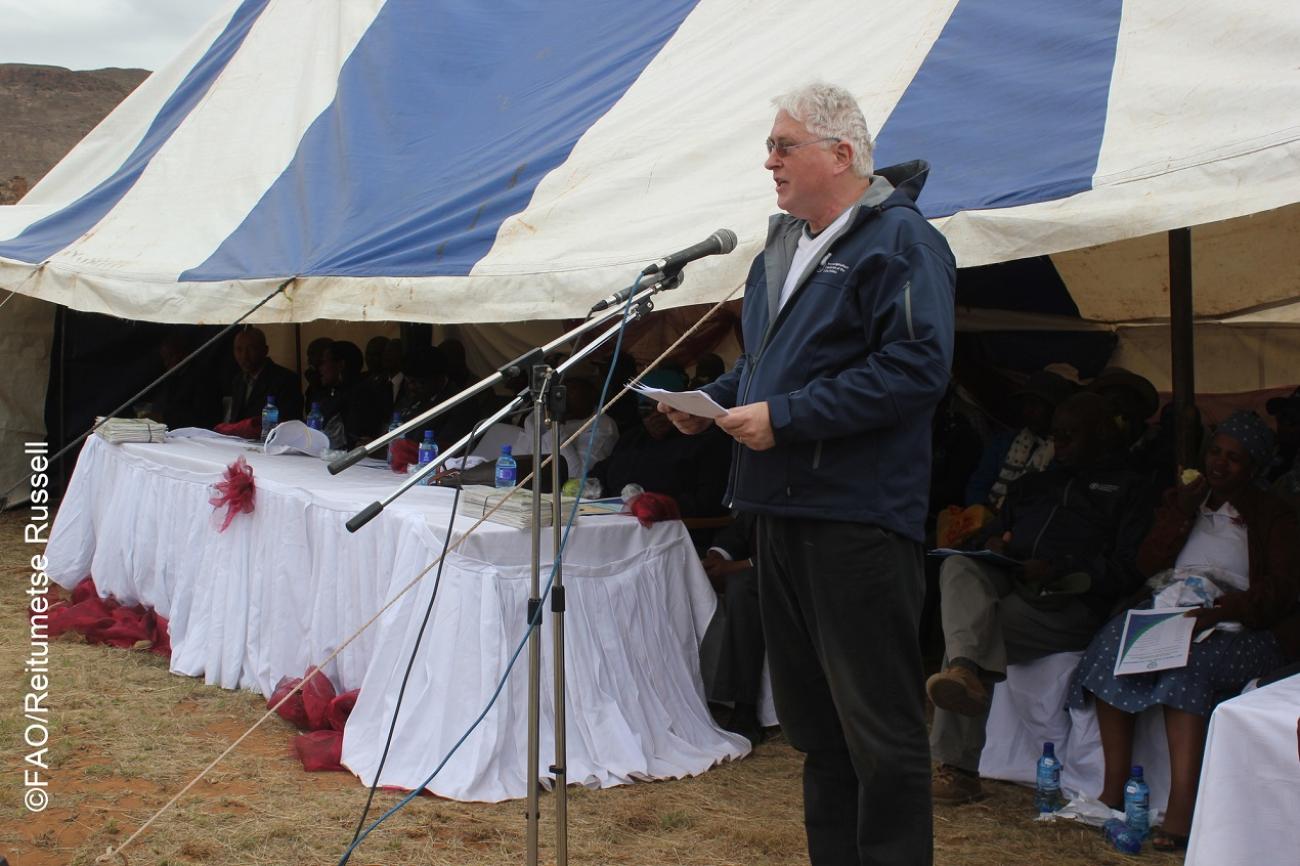FAO Celebrates World Food Day

World Food Day is celebrated every year on 16 October to mark the founding of the organization in 1945.
This year, FAO marked its 37th World Food day with the global theme: Change the Future of migration: Invest in Food Security and Rural Development.
Events are organized in over 150 countries across the world, making it one of the most celebrated days of the UN calendar. These events promote worldwide awareness and action for those who suffer from hunger and for the need to ensure food security and nutritious diets for all.
In Lesotho, this day was commemorated in Qacha’s Nek- Ha Sekake, with the Ministry of Agriculture and Food Security as the organizing body. Farmers from around the region displayed their various agricultural outputs at the event, as a way of showing how they are contributing towards hunger elimination in Lesotho.
Mr Yves Klompenhouwer, the FAO Representative in Lesotho stated that migration issues in Lesotho are of a different nature in comparison to the rest of the world: “Lesotho has been spared the horrible scenes that we witness on international news, with flows of refugees and internally displaced persons and their immense load of suffering.” With a net migration rate of -7.62% per 1000 inhabitants in 2014, Lesotho places itself in the group of the top 15 countries in the world with the highest outmigration.
There is light at the end of the tunnel as there are various strategies that can be used to mitigate the negative impacts of migration in Lesotho:
- Working on climate change adaptation: Climate change adaptation strategies that aim to address both abrupt and gradual onset climate impacts and associated risks. Climate smart agriculture (CSA) techniques that increase resilience and contribute to more sustainable food systems under climate change.
- Reduce Lesotho’s vulnerability for disasters: Disaster risk reduction strategies can help address the negative impacts of extreme weather events and environmental degradation on agriculture, and thus migration prompted by environmental distress.
- Promote rural development: Job creation in rural communities contributes to farmers’ income diversification and enhances resilience to adverse effects of climate change. Improving access to education and skills development, especially for rural youth, can improve prospects. Promoting green jobs in agricultural sectors and rural areas is an effective strategy to reduce climate induced migration.
- Harnessing the benefits remittances: Remittances from migrants help their families back home to cope with crises through alternative or additional sources of income. Policies that strengthen financial literacy and promote investment in climate smart agriculture can boost the positive effects of remittances in rural areas.
The Minister of Agriculture and Food Security, Honorable Mahala Molapo, the Deputy Minister of Home Affairs, Honourable Machesetsa Mofomobe, were in attendance amongst other members of parliament as a testament to the important links between food security, rural development and migration.

